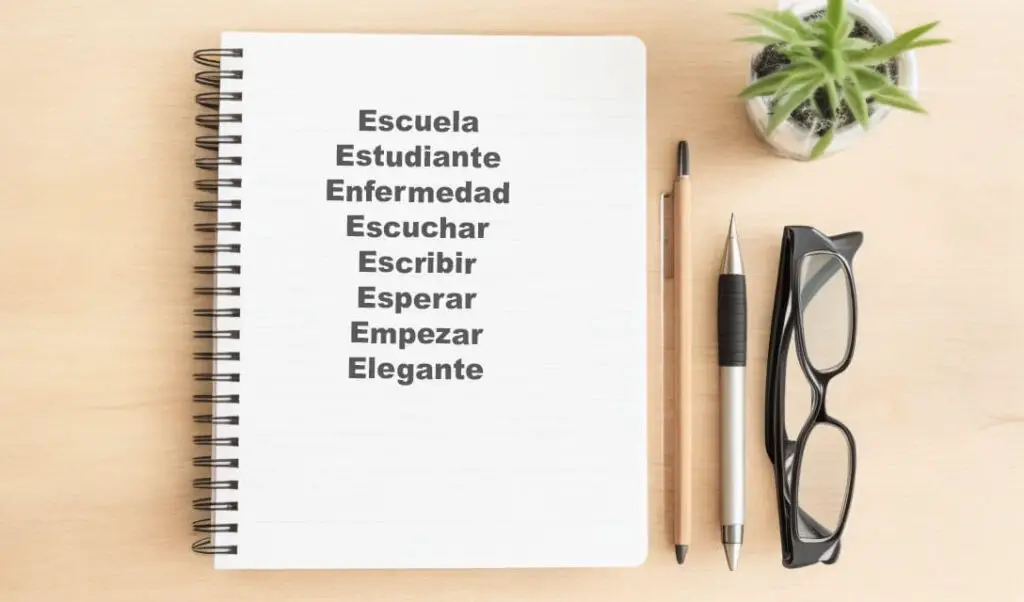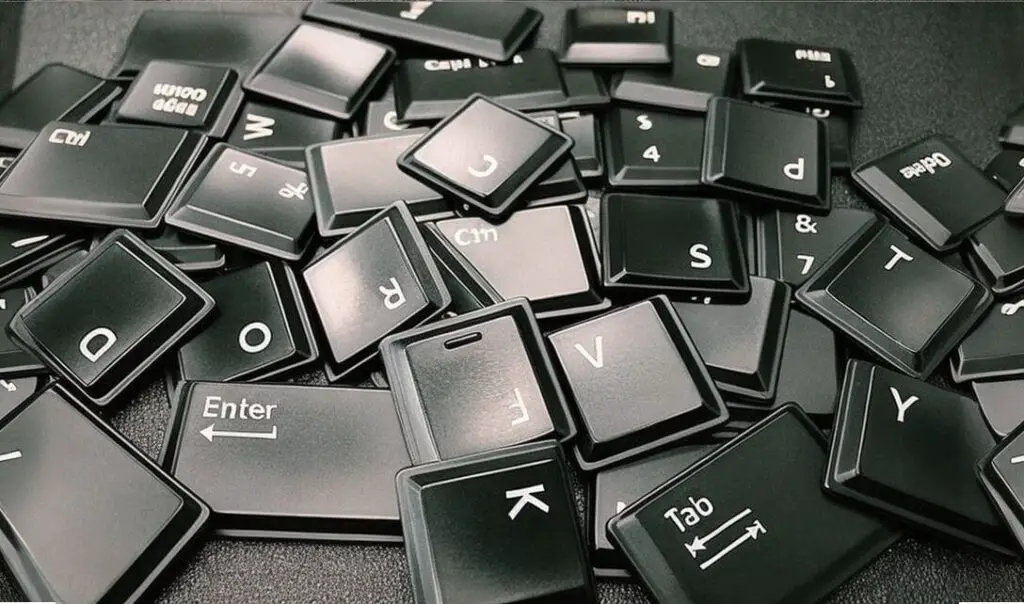The letter E is one of the most important letters in the Spanish language, with a variety of uses and pronunciations. Whether you are a beginner or an advanced learner of Spanish, understanding the letter E is essential for effective communication. In this article, we will explore the significance of the letter E in Spanish and provide tips on how to use it correctly. We will also cover a range of topics, including Spanish words and names that start with E, how to type the accented letter É on your keyboard, and common Spanish adjectives that begin with E. So, let’s dive into the world of the letter E in Spanish and enhance our language skills!
Understanding the Letter E in Spanish

Spanish is a beautiful and widely spoken language that has captured the hearts of people all around the world. One of the most significant letters in the Spanish alphabet is the letter “E”. In this section, we will dive into the intricacies of this letter and explore its importance in the Spanish language and culture.
Firstly, it is important to understand the pronunciation of the letter “E” in Spanish. Unlike in English, where “E” can have various pronunciations, in Spanish, “E” is consistently pronounced as “eh”. This makes it easier for language learners to grasp the basics of the language and improves their ability to communicate effectively.
The letter “E” in Spanish has great significance in the language and culture. It is present in countless Spanish words, and its correct usage is crucial for effective communication. Understanding the proper use of the letter “E” can significantly improve one’s ability to speak and write in Spanish.
Furthermore, the letter “E” is essential to the Spanish language’s rhythmic structure, making it an integral part of Spanish poetry and music. It is a common letter in Spanish surnames and is often used in the names of places, people, and things.
To wrap up, the letter “E” is an essential component of the Spanish language and culture. It is critical for language learners to understand its pronunciation, usage, and significance in Spanish language and culture. In the following sections, we will delve deeper into the letter “E” and explore Spanish words, names, and adjectives that start with this letter. We will also learn how to type the letter “É” on our keyboards, a crucial skill for effective communication in Spanish.
Using the Letter E in Spanish Correctly

The letter “E” in Spanish is a critical component of the language, and its proper use is essential for effective communication. To use the letter “E” correctly, one must first understand its various uses in the Spanish language.
One of the most common uses of the letter “E” in Spanish is to form the plural of nouns and adjectives. For example, the word “amigo,” meaning “friend,” becomes “amigos” in the plural form. However, it is important to note that not all Spanish words ending in “o” become plural by adding “es” to the end. Some words require the addition of “s” only, while others require the addition of “es” with an accent on the final syllable.
Another important use of the letter “E” in Spanish is to create words with accents. The accented “é” is pronounced differently than the unaccented “e” and is used to distinguish between words that have different meanings but are spelled similarly. For example, “café,” meaning “coffee,” is different from “cafe,” meaning “cafeteria.”
When typing in Spanish, it is essential to know how to type the accented “é.” To do this on a standard keyboard, one can use the following shortcut: press and hold down the “Option” key while typing “e,” release both keys, and then type the letter “e” again. This will result in the accented “é” appearing on the screen.
It is important to note that the letter “E” in Spanish also has other uses, such as forming the imperfect tense of verbs and indicating the second person singular familiar pronoun. To use the letter “E” in these contexts correctly, it is best to consult a comprehensive Spanish grammar guide.
To summarize, the letter “E” is an essential component of the Spanish language, and its proper use is crucial for effective communication. By understanding the various uses of the letter “E” in Spanish, including the accented “é,” one can avoid common mistakes and communicate more effectively in this beautiful language.
Spanish Words That Start With E

When it comes to learning Spanish, it is essential to build a solid vocabulary foundation. One way to do this is by familiarizing yourself with common Spanish words that start with the letter “E”. Here are some examples:
- Escuela (School): “Me gusta mi escuela.” (I like my school.)
- Estudiante (Student): “Soy un estudiante de español.” (I am a Spanish student.)
- Enfermedad (Illness): “Tengo una enfermedad.” (I have an illness.)
- Escuchar (To listen): “Me gusta escuchar música en español.” (I like to listen to music in Spanish.)
- Escribir (To write): “Me gusta escribir cuentos.” (I like to write stories.)
- Esperar (To wait): “Tengo que esperar el autobús.” (I have to wait for the bus.)
- Empezar (To start): “Tenemos que empezar la tarea.” (We have to start the homework.)
- Elegante (Elegant): “Ella lleva un vestido muy elegante.” (She is wearing a very elegant dress.)
These words are just a few examples of the many Spanish words that start with the letter “E”. Learning them will not only increase your vocabulary but also provide insight into the Spanish language and culture. So, whether you are a beginner or an advanced Spanish learner, make sure to include these words in your studies.
Spanish Names That Start With E

If you’re looking for a unique and meaningful name for your child, Spanish names that start with the letter E are a great place to start. There are many beautiful and popular names in the Spanish language that begin with this letter.
One popular Spanish name that starts with E is Emilia, which means “rival” or “eager.” Other popular E-names for girls include Elena, which means “bright” or “shining,” and Esperanza, which means “hope.” For boys, popular E-names include Eduardo, which means “wealthy guardian,” and Enrique, which means “ruler of the home.”
In addition to these popular names, there are many other Spanish names that start with the letter E, each with their own unique meaning and significance. For example, the name Esteban means “crown” or “victorious,” while the name Eliana means “my God has answered.”
It’s important to note that when pronouncing Spanish names that start with the letter E, the “E” is typically pronounced as “ay.” For example, Emilia is pronounced “ay-mee-lee-ah,” while Eduardo is pronounced “ay-doo-ar-doh.”
Whether you’re looking for a traditional or modern name, Spanish names that start with the letter E offer a variety of options for your child. By choosing a Spanish name, you can honor your heritage or simply appreciate the beauty and significance of the language.
How to Type É on Your Keyboard

Typing in Spanish can be challenging if you’re not familiar with the special characters used in the language, such as the letter É. If you’re using a Windows computer, you can type the letter É by holding down the Alt key and typing 0201 on the numeric keypad. On a Mac computer, you can simply hold down the Option key and press the E key, and then type the letter E again. On a mobile device, such as an iPhone or Android phone, you can access the É by holding down the letter E on the keyboard and selecting the accented version that appears.
It’s important to note that the letter É has significance in the Spanish language and culture. It is one of the letters that can change the meaning of a word entirely. For example, “el” means “the” in Spanish, while “él” means “he.” Similarly, “esta” means “this” in Spanish, while “está” means “is.”
If you’re typing in Spanish frequently, it’s helpful to know how to access special characters quickly and easily. Many keyboard settings allow you to customize shortcuts or use the “Alt + numeric code” method. Alternatively, you can install a Spanish keyboard on your device for more efficient typing.
All things considered, understanding how to type the letter É is crucial when typing in Spanish, as it can change the meaning of a word entirely. It’s important to be familiar with the methods of accessing special characters on your keyboard, and to consider using a Spanish keyboard for more efficient typing.
Spanish Adjectives That Start With E

Learning Spanish can be fun and exciting, especially when you start building your vocabulary. One way to expand your Spanish vocabulary is by learning adjectives that start with the letter E. In this section, we will provide you with a list of common Spanish adjectives that start with E, along with their English translations, examples of how to use them in sentences, and an explanation of their significance in Spanish language and culture.
- Elegante – elegant Example sentence: Ella llevaba un vestido elegante a la fiesta. (She wore an elegant dress to the party.)
- Enérgico – energetic Example sentence: El niño es muy enérgico y siempre quiere jugar. (The boy is very energetic and always wants to play.)
- Enojado – angry Example sentence: El conductor estaba enojado por el tráfico. (The driver was angry about the traffic.)
- Emocionado – excited Example sentence: Estoy emocionado de viajar a España. (I’m excited to travel to Spain.)
- Enamorado – in love Example sentence: Estoy enamorado de mi novia. (I’m in love with my girlfriend.)
- Especial – special Example sentence: Hoy es un día especial porque es mi cumpleaños. (Today is a special day because it’s my birthday.)
- Extrovertido – extroverted Example sentence: Ella es muy extrovertida y siempre hace nuevos amigos. (She is very extroverted and always makes new friends.)
In Spanish, adjectives are often used to describe a person, place, or thing. By learning common adjectives like these, you can more easily express yourself in Spanish and communicate effectively with Spanish speakers.
Finally, adding these Spanish adjectives that start with E to your vocabulary will not only enhance your language skills but also give you a better understanding of Spanish culture and its people.
Conclusion
To sum up, the letter E is a crucial component of the Spanish language and holds significant cultural, linguistic, and even spiritual meaning. We have explored various aspects related to the letter E in Spanish, such as Spanish words that start with E, Spanish names that start with E, how to type the letter É on your keyboard, and common Spanish adjectives that start with E. In addition to its linguistic and cultural significance, the letter E also holds a spiritual meaning, representing empathy, enlightenment, and exploration.
By understanding these aspects, we can gain a better appreciation of the Spanish language and culture. Moreover, learning Spanish has become increasingly important in the United States, where it is one of the most widely spoken languages after English. Therefore, for those who wish to continue learning Spanish, we encourage exploring Spanish words that start with the letter E and expanding your vocabulary.
Ultimately, we hope this article has helped you gain a deeper appreciation of the importance of the letter E in the Spanish language and inspired you to continue your journey of learning this beautiful language, including exploring the spiritual meaning of the letter E.




